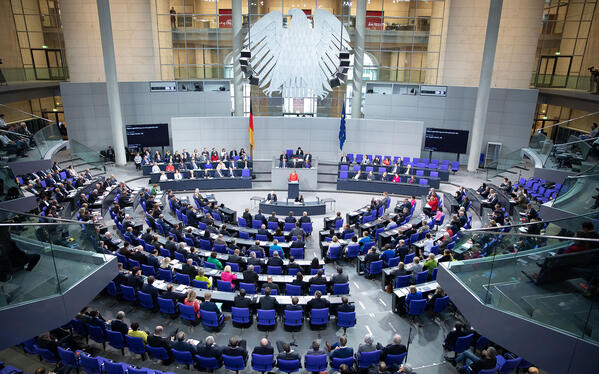German employers are short hundreds of thousands of workers. The sectors most affected are IT and technology, medicine, contracting, engineering and logistics – Deutsche Welle reports.
On the one hand, Germany is strictly tightening its migration policy, and on the other hand, it is opening its doors for skilled workers.
The revised Skilled Immigration Act, passed by the German parliament, the Bundestag, in the summer, is designed to rapidly lower the barriers to immigration of skilled workers from outside the European Union. The first changes will take effect from 18 November 2023. The new rules will come into force in the following stages.
Firstly, there is the EU Blue Card, which has been in force for ten years. Now, thanks to lower income requirements, it will be easier to obtain. This innovation will allow more researchers and workers with similar qualifications from third countries to come to Germany on the EU Blue Card without German language requirements. Annual salary limits will be lowered to just under €40,000 for entry-level and in-demand occupations known as “bottlenecks”; all other occupations will be capped at €44,000 from 2023.
In the IT sector, skilled workers without higher education can also obtain an EU Blue Card if they can prove that they have at least three years of relevant professional experience. Nursing assistants with less than three years of training will also gain access to the German labour market.
The second stage addresses the issue of the right of residence. Qualified workers with professional or academic qualifications who fulfil all requirements are now entitled to a residence permit. Experienced skilled workers will no longer need to have their qualifications recognised in Germany if they are already recognised in their country of origin and have at least two years of professional experience.
The changes are due to come into force on 1 March 2024.
Statements regarding qualifications and training. For example, someone who needs to undertake training to obtain a qualification in Germany corresponding to an equivalent foreign qualification can now stay in Germany for up to three years and work on the side for up to 20 hours per week. Part-time work will also be extended generally to students and trainees. However, the prerequisites for this are a vocational qualification of at least two years’ duration and a German language proficiency of at least A2.
With the agreement of employers in Germany, qualified workers can come directly to Germany and work while the procedure for the recognition of their qualifications is underway, and the period of stay can be extended to three years at the same time. With regard to spouses and minor children, skilled workers will have to prove that they can support them, but not that they have sufficient living space.
Further changes are due to take effect from 1 June 2024.
The next change is Opportunity Card. In June it is planned to introduce a points-based Opportunity Card for those with equivalent foreign qualifications. This feature will allow them to come to Germany for a year to look for work if they can demonstrate financial independence. For the rest, a higher education or vocational qualification of at least two years’ duration is required, along with German at A1 level or English at B2 level.
Another resolution concerns people from the Western Balkans: it increases the quota for entry into Germany for workers from Albania, Bosnia and Herzegovina, Kosovo, Montenegro, North Macedonia and Serbia twice up to 50,000 thousand people.
